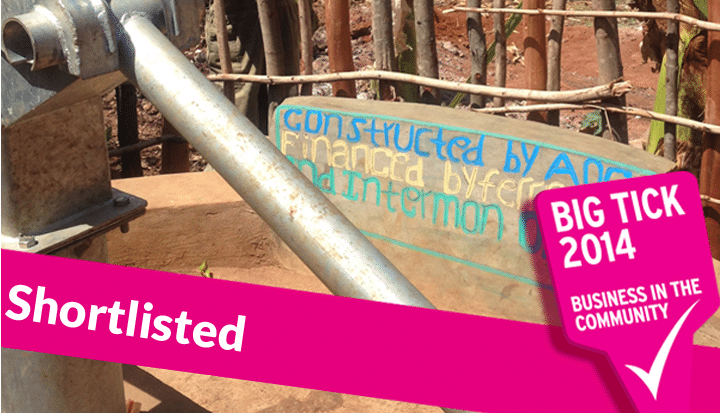Ferrovial uses its expertise in infrastructure to improve the water and sanitation systems in disadvantaged communities in Africa and Latin America.
Social impacts
- €3,145,591 invested, nine projects developed or in progress, with 153,743 beneficiaries.
- More than 300 infrastructure systems – mainly clean water and sanitation – constructed in six countries in Africa and Latin America.
- More than 2,000 people trained in water and sanitation management.
- 58 volunteer employees.
Business impacts
- Improving the presence of the company in Social Responsible Investment and improving the company’s reputation.
- Strengthened corporate culture and cross-departmental collaboration.
- Attracted talent and improved employees’ satisfaction.
- Gained a “license to operate” in new markets and improved relations with governments, who are Ferrovial’s main customers.
“The key differentiating factor of this program is undoubtedly the direct involvement of Ferrovial’s employees. Their solidarity and commitment make it possible for us to improve the lives of those who have no access to water, the world’s most vital resource.”
-Rafael del Pino,
Chairman of Ferrovial
The aim of the Social Infrastructure Programme is to provide access to basic efficient infrastructure systems – mainly clean water and sanitation – to disadvantaged communities in Africa and South America. This is done via a triple partnership between Ferrovial, NGOs and regional governments.
The programme has impacts on health, education, volunteerism, infrastructure, employee engagement and development cooperation.
Ferrovial’s CSR strategy is aligned with the business strategy: the positioning of the new Ferrovial in Intelligent Infrastructures, which will bring about efficient, accessible and clean infrastructure systems that are better adapted to fit society’s needs.
Ferrovial also aims to become a benchmark example for Millennium Development Goal 8: “A global partnership for development.” Using the company’s long experience in infrastructure management, Ferrovial aims to be an actor in sustainable development, not just a donor.
The company wishes to put its know-how at the disposal of disadvantaged communities in the regions where it operates. Since the company’s main asset are its employees, the programme seeks volunteers in all steps of the projects’ design and implementation. This collaborative method allows more efficient management and implementation of the projects, in terms of resources, deadlines and acceptance by local communities.
The Social Infrastructure Programme has also helped achieve the creation of a new corporate culture connecting all employees from across its various business areas. This has tackled the problem of a loss of identity and difficulties in communication between departments.
“The key differentiating factor of this program is undoubtedly the direct involvement of Ferrovial’s employees. To date, 58 volunteers, out of nearly 200 candidates, have been working on the field. Their solidarity and commitment make it possible for us to improve the lives of those who have no access to water, the world’s most vital resource”.
The Unilever International Award supported by Business Fights Poverty recognises businesses that have positively impacted one or more of the United Nations Millennium Development Goals (MDGs). The Award is part of Business in the Community’s Responsible Business Awards.
The companies awarded a Big Tick in this category have positively impacted over seven million beneficiaries. These companies are helping to eradicate extreme poverty, promote gender equality, support various aspects of the health agenda, and build global partnerships for development between civil society, business and governments. These programmes demonstrate innovation, scale and the potential to be replicated, highlighting the importance of business as a key enabler of the MDGs.
The case studies profiled in this week’s special on Business Fights Poverty provide more detail about the programmes that achieved a Big Tick and those shortlisted for the top accolade. For more information, click here.
This blog was previously published on Business In The Community and is reproduced with permission.










